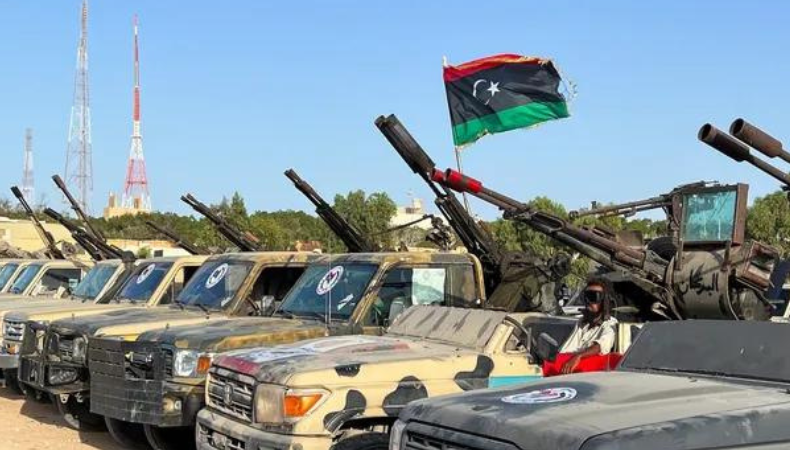Libyan govt confirms militias’ departure from Tripoli after reaching agreement

Since the toppling of Muammar Gaddafi’s administration in 2011, Libya has been hooked with a significant security vacuum, especially apparent in its capital, Tripoli. Within the nonattendance of a bound together and viable central specialist, various equipped bunches developed, each competing for control and impact.
These local armies, composed of previous rebels, tribal warriors, and Islamist groups, set up control over diverse neighborhoods and areas of Tripoli, viably usurping the part of law requirement and administration.
Their nearness made a divided and chaotic scene, characterized by visit viciousness, blackmail, and wilderness. In spite of universal endeavors to broker peace and set up a steady government, the expansion of outfitted bunches continued, worsening Libya’s precariousness and preventing its move to popular government.
Arrangements and Agreement
Within the confrontation of mounting viciousness and precariousness in Tripoli, Interior Minister Imad Trabelsi, speaking to the universally recognized government, embraced broad transactions with the different equipped groups controlling the capital. After extended dialogs, a point of interest understanding came to signaling an urgent minute in Libya’s journey for soundness. The ascension stipulates the withdrawal of volunteer army strengths from Tripoli and their substitution with standard security faculty entrusted with re-establishing law and order. This discretionary breakthrough speaks to a critical takeoff from past endeavors to address the local army issue and outlines a recharged commitment to serene determination and state-building endeavors.
Usage and Timeline
The usage of the ascension includes a carefully coordinated staged withdrawal of outfitted bunches from Tripoli. Key volunteer army groups, counting the General Security Force, the Special Deterrence Force, Brigade 444, Brigade 111, and the Stability Support Authority are ordered to clear the capital by the conclusion of the Muslim heavenly month of Ramadan on April 9. This timeline permits for an organized move of control, minimizing potential security vacuums and guaranteeing a smooth handover to normal security powers. Also, the understanding diagrams instruments for checking and confirming the withdrawal handle, in this manner improving responsibility and straightforwardness.
Keep Reading
Suggestions and Future Prospects
The understanding holds significant suggestions for Libya’s direction and future prospects. By transitioning control from volunteer army bunches to customary security powers, the government aims to re-establish open belief and certainty in state education while clearing the way for broader security segment change activities. The withdrawal of equipped groups from Tripoli is anticipated to essentially diminish the level of savagery and frailty within the capital, cultivating an environment conducive to financial advancement, political steadiness, and social cohesion. The victory of the understanding pivots on its compelling usage and the government’s capacity to assert expertise over the whole capital, guaranteeing enduring peace and solidity for Libya’s troubled populace. Moving forward, supporting universal back and engagement will be basic in uniting these picks and progressing Libya’s move towards a vote-based system and success.










